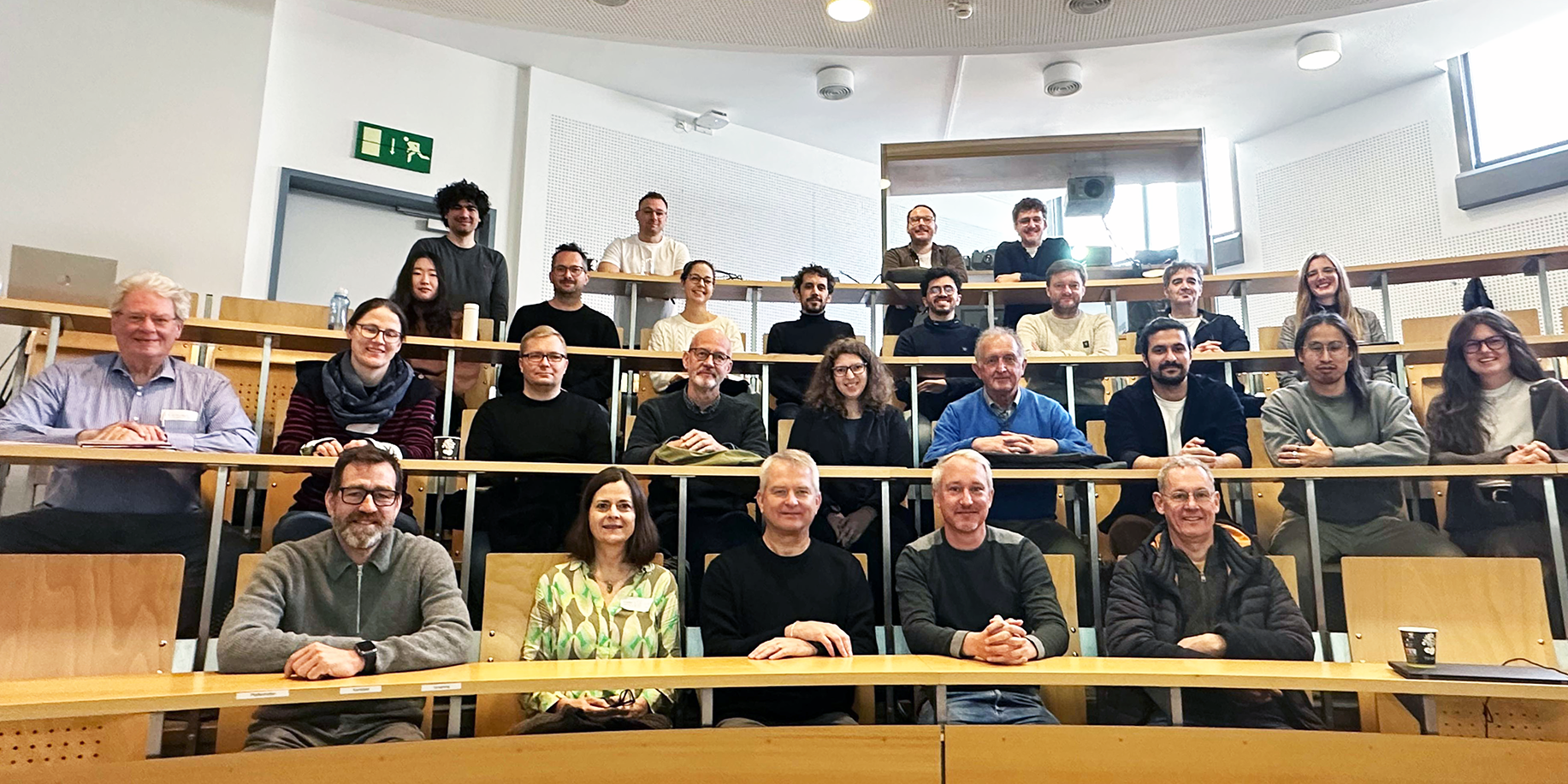
Harnessing the Potential of AI Language Models in Clinical Practice
GeMTeX LLM Workshop & Plenary Meeting on 10th – 11th November 2025
Around 50 GeMTeX project members and additional participants from research, clinical practice, and informatics gathered in Munich on 10th November 2025 for the fourth Large Language Model (LLM) Workshop to exchange insights on current developments and applications of language models in medicine. The subsequent GeMTeX plenary meeting on 11th November focused on the project’s progress.
The GeMTeX project prepares clinical documents such as medical reports and discharge letters so that they can be used in a privacy-compliant manner for research and artificial intelligence (AI) applications. AI-driven language models like LLMs learn from large volumes of text data and can be applied to a wide range of tasks, for example, generating independent text. To discuss the opportunities, prerequisites, and challenges of using LLMs in clinical settings, the GeMTeX team invites experts to an LLM workshop twice a year.
Around 14,700 clinical documents processed in a privacy-compliant way
To kick off the fourth LLM Workshop on 10th November, Dr. Frank Meineke, Christina Lohr (Leipzig University), and Justin Hofenbitzer (TUM Klinikum rechts der Isar) presented the current status of the GeMTeX project. Approximately 14,700 clinical documents have already been de-identified at the partner university medical centers in Munich, Leipzig, Essen, Berlin, Dresden, and Erlangen. Student assistants removed all data that could reveal the identity of individuals or institutions. In parallel, semantic annotation has begun at all sites to structurally capture content such as diagnoses, procedures, or therapy references using metadata.
International efforts are also underway to make health data from clinical texts available. Following the GeMTeX team’s presentation, Prof. Markus Kreuzthaler (Medical University of Graz) provided insights into the EU project AIDAVA, where—as in GeMTeX—extensive manual annotations of clinical documents are being created.
LLMs offer potential for ophthalmology and decision support
As the LLM workshop progressed, the focus shifted towards clinical application scenarios. Professor Danny Kowerko (Chemnitz University of Technology) demonstrated the potential of generative language models in ophthalmology. His talk showed how clinical information can be leveraged using LLM-based extraction methods. Another example from clinical practice was presented by Prof. Florian Matthes (TU Munich). His team is developing Mevidence, a prototype of an LLM-based question–answer system designed to support clinical decision-making. Matthes also provided a concise overview of the legal requirements that must be considered when using clinical data in AI systems.
New supercomputer provides the foundation for LLMs
For language models to work, they must be trained on large datasets. Researchers require immense computational power for this — supercomputers offer a viable solution. At the workshop, Mathis Bode (Forschungszentrum Jülich) presented JUPITER, Europe’s first exascale supercomputer, which became operational in September 2025.
With an exabyte of storage and more than one trillion computing operations per second, JUPITER is among the world’s most powerful supercomputers. Only with such systems will it be possible to compute large language models comparable to existing commercial models in the future.
Panel discussion highlights requirements for LLMs in clinical settings
In the second part of the event, experts from Graz, Leipzig, Munich, and other locations discussed how LLMs can be meaningfully integrated into clinical workflows. The panelists agreed: LLMs in clinical contexts must be developed with strong user and patient centricity and fit seamlessly into existing workflows. In addition, a gold standard for evaluating LLMs is needed.
Documents to be made available in Data Integration Centers
At the GeMTeX plenary meeting on the second day, everything revolved around internal project progress. A highlight was the successful specification of the MII Core Data Set module Document—a major milestone for GeMTeX. The Core Data Set of the Medical Informatics Initiative (MII) defines how data must be provided by the Data Integration Centers at hospitals. The Document module will now be gradually implemented in the Data Integration Centers so clinical document data can be made available in a standardized format.
The project team is also working on a concept for the reuse of the text corpus emerging from GeMTeX. At the plenary meeting, Abanoub Abdelbmalak (ZB MED) presented initial plans for public access to the corpus.
GeMTeX is working toward a German clinical text corpus
Nearly two and a half years into the project, one thing is clear: the GeMTeX team is steadily approaching its goal — creating a large German corpus of texts from clinical care. At the same time, this work is increasingly intersecting with the dynamic development of large clinical language models.
The next plenary meeting will be held online on 18th March 2026, followed by another in-person meeting in Munich at the end of June 2026.

